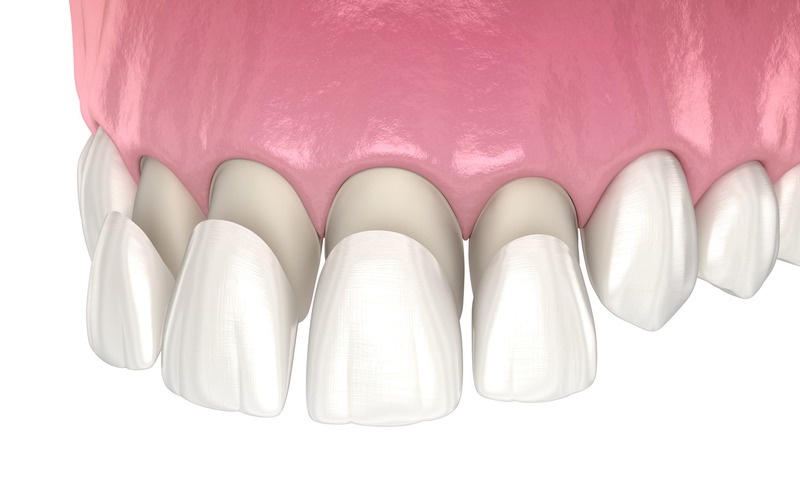Maintaining excellent oral hygiene is a fundamental part of overall health and well-being. It’s more than polishing the teeth—it’s about forming habits that prevent dental issues like cavities, gum disease, and bad breath. With the right approach, it’s possible to preserve a radiant smile and enjoy better health outcomes. Exploring essential steps ensures one is well-versed in fostering the best possible oral health, empowering with tools and knowledge to achieve and sustain excellent outcomes.
Steps for Good Oral Hygiene
Good oral hygiene practices form the cornerstone of dental health and are essential to prevent dental concerns, including decay and gum disease. Here’s a clear path:
-
Brush Twice Daily – Use fluoride toothpaste and brush for two minutes, covering all teeth surfaces to effectively remove plaque and particles.
-
Floss Regularly – Clean between teeth with floss daily to tackle areas that toothbrushes miss and reduce the risk of gum disease and decay.
-
Use Mouthwash – Incorporate mouthwash into the routine to remove lingering bacteria and maintain fresh breath.
-
Schedule Regular Dental Check-Ups – Regular dentist visits assist in catching issues early and keeping teeth professionally clean.
-
Monitor Diet Choices – Choose a balanced diet, aiming to limit sugar intake and include crunchy fruits and vegetables.
Mastering the Art of Brushing
The right brushing technique prevents enamel damage and aids in maintaining healthy gums. Use a soft-bristled brush and apply with gentle, circular motions at a 45-degree angle to the gums. Ensure every tooth surface, including hard-to-reach areas like molars, is clean. Replace the brush every three months, or sooner if bristles fray, to maintain effectiveness. Incorporating tongue brushing can further reduce bacteria and promote fresh breath.
The Role of Flossing
Flossing complements brushing and is crucial for reaching debris lodged between teeth. It prevents plaque buildup that can lead to gum disease. Use about 18 inches of floss, ensuring each tooth is cleaned by curving the floss in a C-shape and sliding it up and down. Flossing should be a part of the nightly routine, safeguarding long-term dental health. Consistent flossing prevents cavities and supports gum health, fortifying the oral care regimen.
The Benefits of Mouthwash
Mouthwash serves as an effective ally in oral hygiene by reaching areas less accessible by brushing or flossing. Choose a fluoride-based and alcohol-free mouthwash to avoid dry mouth while reinforcing tooth strength and freshness. Use mouthwash after brushing and flossing for optimal results. Swishing for the recommended time ensures the efficacy of protective and cleansing properties. Regular use enhances oral care outcomes and provides lasting freshness.
A healthy mouth often requires a dedicated approach that involves more than just routine care. Sometimes, gum disease treatment Normandy Park is necessary to address conditions like gingivitis or periodontitis. These treatments help protect oral health and prevent further complications. A personalized plan is recommended to address specific issues effectively.
Importance of Dental Check-Ups
Alongside regular home care, visiting a dental professional is vital for a thorough oral health assessment. Dentists identify and treat concerns that may not be noticeable at home, such as cavities or early gum disease stages. Schedule routine check-ups every six months to maintain oral health and prevent problems. Professional cleanings at these visits help remove plaque and tartar that is not eradicated by daily brushing and flossing. The dentist’s advice tailors oral care strategies to suit individual needs.
Dental health professionals aren’t just there to fix existing problems; they provide valuable tips for maintenance and preventive care. For specialized treatments like managing TMJ disorders or chronic conditions like bruxism, options like botox treatment in Normandy Park WA are available. Consulting a dentist can help identify the need for such treatments, ensuring a personalized approach to oral health management.
The Impact of Nutrition on Oral Health
Nutrition plays a substantial role in oral hygiene. Aiming for a balanced diet that includes ample fruits and vegetables supports dental health. Foods rich in calcium and phosphorus strengthen teeth enamel. Avoiding excessive sugars and acidic foods helps minimize the risk of decay. Drinking water frequently aids in cleansing the mouth and preventing dry mouth. Diet influences oral health significantly, preventing issues tied to nutrition-related deficiencies.
Common Mistakes in Oral Hygiene
-
Neglecting Regular Flossing – Omitting this step misses interdental cleaning, notably leading to plaque accumulation and gum issues.
-
Skipping Tongue Cleaning – Overlooking the tongue allows bacteria to contribute to bad breath and oral hygiene challenges.
-
Brushing After Meals – Doing so too soon, especially after acidic intake, can harm enamel and should be delayed for at least 30 minutes.
-
Using Hard-Bristled Brushes – These can wear down enamel; soft bristles offer effective cleaning without harming gums and teeth.
-
Ignoring Dental Visits – Skipping regular check-ups can result in undiagnosed and untreated dental problems, which escalate over time.
Planning for Lifelong Dental Health
Consistent oral care habits lead to lifelong dental health benefits. Emphasizing early education in these practices establishes good habits from a young age, promoting a healthier lifestyle. Adults should model effective routines and explain the importance of each step to children. Establishing a structured oral care routine ensures these practices become second nature, supporting sustained dental health and confidence.
The challenges of oral hygiene can be easier when taking a balanced approach to regular maintenance, diet, and professional care. When encountering issues such as anxiety related to dental procedures or budgeting for treatment, discussing these with a dentist in Normandy Park, can lead to tailored solutions. Services can be planned to manage costs effectively while ensuring optimal outcomes.
Oral Health and Its Connection to Overall Well-being
Maintaining oral hygiene extends beyond pleasant smiles; it interlinks with broader health facets. Research indicates connections between oral health and systemic conditions like cardiovascular disease and diabetes. Preventing oral infections curtails these related health concerns. Ensuring dental hygiene facilitates lifelong benefits, optimizing both oral and overall health. Associate care practices with a comprehensive health routine for enduring wellness.
Closing Remarks
Adhering to a structured oral hygiene routine pays dividends in preventing dental issues, boosting confidence, and contributing to overall well-being. By adopting and maintaining a consistent regimen that includes brushing, flossing, regular check-ups, and dietary mindfulness, optimal oral health becomes achievable. Remember that each step significantly impacts not only your mouth but your general health. Stay informed, committed, and proactive in oral care endeavors to enjoy a lifetime of healthy smiles.


